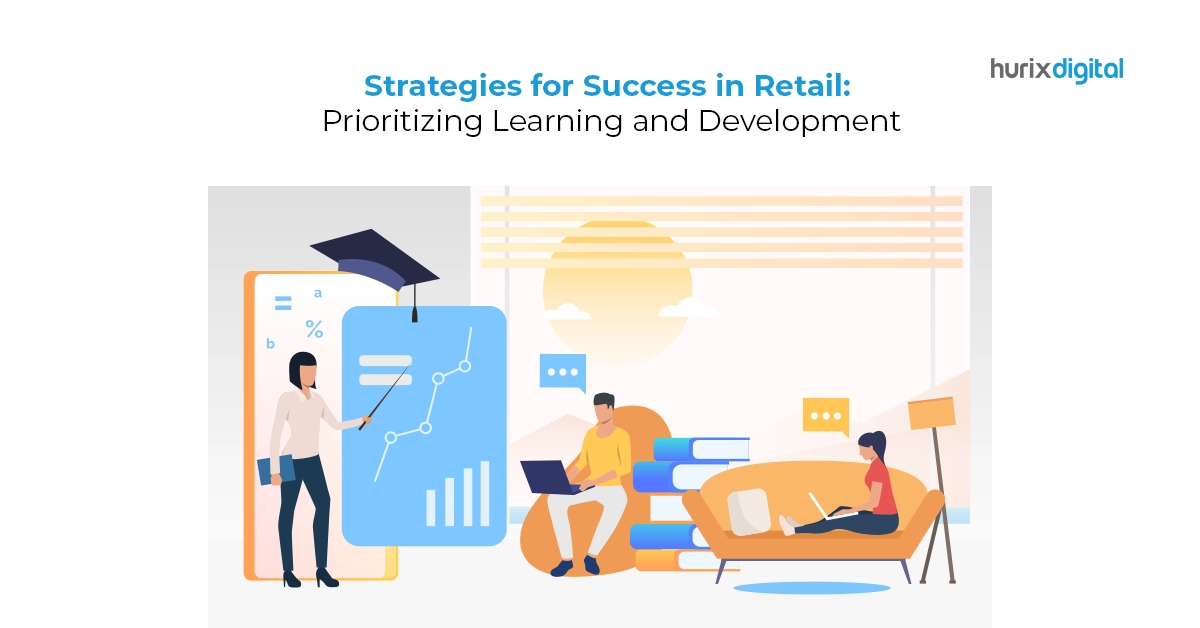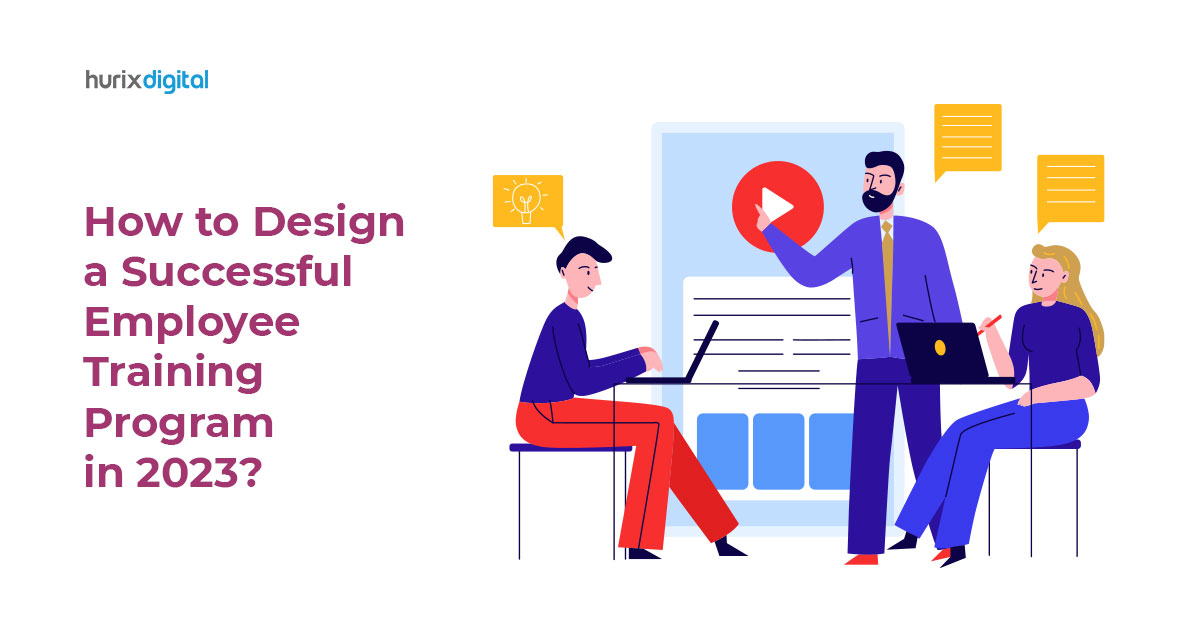
Strategies for Success in Retail: Prioritizing Learning and Development
Summary
This article provides a comprehensive overview of the key challenges in retail training programs and the solutions that can equip retail workforces with the skills they need to stay competitive.
The retail sector, no doubt, is one of the sectors most impacted by digital transformation. With more consumers shopping online, they are shifting brand loyalties and becoming more price-conscious.
A recent survey indicated that 80% of respondents preferred online shopping. However, it was interesting to note that in the offline mode:
- 36% of respondents prioritized quality
- 30% of respondents prioritized price
- 22% of respondents prioritized the payment facility
- 12% of respondents prioritized the salesperson’s advice
As consumers get more specific about their needs, due to the power of choice, businesses are under a significant amount of pressure to stay competitive. Retail companies are responding with innovative practices such as personalization, store-branded applications, virtual shopping experiences, and the use of augmented reality to attract customers.
However, sustaining such innovation is impossible without ensuring that workforces are up-to-date in their skills, mindset, and knowledge base. The pace of transformation is so fast that the culture of ad hoc, isolated onsite training sessions cannot meet the training.
Retail companies need to build a sustainable, tech-driven, data-centric retail training program framework to equip workforces with important skills on an ongoing basis.
Table of Contents:
- Key Challenges in Retail Training Programs
- 6 Pillars of Superior Retail Training Programs
- Benefits of Tech-Enabled Retail Training Programs
- Final Thoughts
Key Challenges in Retail Training Programs
Training programs are a vehicle by which companies can engage in employee development through skill building. Retail workforces may be trained on various aspects, such as:
- Products
- Specific domain functions
- Processes
- Usage of tech platforms that automate and efficiently function
However, companies struggle with several challenges as follows:
1. Lack of Consistent Employee Training
Companies tend to host training when they sense drastic market shifts or in times of crisis.
When this is the case, productivity drops drastically because not all employees can absorb and retain learning quickly enough. Instead, employee training must be a proactive (not reactive) process so that teams can respond quickly to new market conditions.
2. Lack of Flexibility
Traditional methods of training, i.e., lecture-style onsite training, do not offer learning flexibility. Employees need to disrupt their work schedules to attend training.
Lack of flexibility may lead to a lack of training bandwidth, which means that employees may stop attending sessions altogether.
3. Lack of Training Relevance
Companies that deliver one-size-fits-all training programs may observe low learning effectiveness impact. Training must be relevant to an employee’s specific skill sets, strengths, and potential, to make them highly productive.
4. Inability to Track Training Effectiveness
Companies may lack the technology to track training effectiveness with real-time data. Lack of access to data diminishes training efforts, making it challenging to know an employee’s progress on a consistent, real-time basis.
5. Resource-Intensive Efforts
Traditional training methods required investment in resources such as facilitators and trainers, physical space to conduct training, and design of training sessions.
This approach consumes financial resources and human bandwidth, making it challenging to make employee development a sustainable effort.
Also Read: What Is Customized Training? Learn Its Challenges and Benefits
6 Pillars of Superior Retail Training Programs
Here’s a snapshot of how retail training initiatives can become relevant, engaging, and effective:
1. Customized Training Solutions
Every company has a unique business model. Thus, employee training must also be customized.
A large chain of offline retail supermarkets looking to build an online footprint, for instance, has different needs from a Direct-To-Consumer business that’s accelerating growth.
Companies must identify the right mix of blending learning, instructor-led training, and e-learning to make training relevant.
2. Personalized Learning Approach
The old thinking was that training could be conceptualized and delivered en masse.
But today, training is more effective when it is personalized and responsive to an employee’s performance. Feedback must be personalized and very specific.
3. Immersive Training Modules
Retail training programs must have a good dose of hands-on learning.
The use of Extended Reality (XR) technologies like Virtual Reality (VR) and Augmented Reality (AR) can be leveraged to deliver industry-specific simulated learning experiences that prepare employees for real-world scenarios.
4. A User-Friendly Interface
Usage of a cloud-based, Artificial Intelligence (AI) powered Learning Management System (LMS) interface simplifies the entire training process.
It allows easy employee onboarding, creation, and secure distribution of on-demand learning resources, video conferencing facilities, and access to detailed data insights.
5. Mobile-First Approach
With more employees using mobile as their primary mode of communication and learning, companies must deliver mobile-optimized content and sessions.
Employees must be able to log in anytime, from anywhere, and start learning as per their schedules.
6. Data-Driven Training
Access to real-time data analytics is a pillar of effective modern retail training solutions. Companies must have access to data on aspects such as:
- Employee learning patterns
- Usage of on-demand resources
- Performance in assessments and live simulations
- Impact of coaching sessions
Benefits of Tech-Enabled Retail Training Programs
The usage of superior LMS solutions enables businesses to drive more impact in their retail staff development programs.:
1. Automate the Entire Training Process
The use of a single, unified LMS interface allows learning and Development (L&D) teams can automate the entire training workflow – from onboarding employees and creating courses to delivering new training programs quickly.
Training initiatives can be launched on time, and human-intensive efforts can be reduced. L&D teams can invest more time in strategy and less in manual processes.
2. Reduced Employee Cost-to-Company
In the US, over 63% of frontline retail workers think about quitting their jobs. Hence, it is not surprising that attrition in retail is the highest among all sectors.
Lack of opportunities to learn new skills and get on the growth track is a major factor. Attrition increases the cost-to-company because hiring new employees is such an expensive undertaking.
Effective employee growth in retail can play an important role in keeping workforce challenges and reducing attrition.
3. Nurture a Relevant Retail Workforce
Effective retail training programs ensure that employees have the skills to meet current and future challenges. The productivity of the workforce begins to increase.
Employees feel more engaged and motivated to excel. Future leaders can be groomed from within the company to navigate the future of the business.
4. Driving Higher ROI
A well-trained and upskilled workforce can collectively contribute towards two key goals of every retail business – increased customer loyalty and reduced customer acquisition costs.
As retail employees become more customer-centric, both goals are achieved. In turn, this shift helps drive revenues and, in turn, grows the profitability of the business.
Also Read: L&D Strategies to Build a Learning and Growth Culture
Final Thoughts
Tech-enabled, data-driven learning management systems are the future of learning and development in the retail sector. Learning can be automated and tracked in real-time.
The best approach for retailers is to partner with a technology specialist who comes with a deep understanding of training needs. A tech partner must also have the capabilities to leverage technologies like AI, ML, automation, and virtual reality to deliver relevant solutions.
If your business aims to transform its retail training programs, Hurix Digital has the technology solutions to support your needs.
Get in touch with us to start a conversation.

A highly enthusiastic and motivated sales professional with over twenty five years of experience in solution selling of training-related applications and services. Maintains an assertive and dynamic style that generates results. Ability to establish long-term relationships with clients built on trust, quality of service and strategic vision. Specializes in financial services, higher ed, publishing and government in the areas of learning and development.










